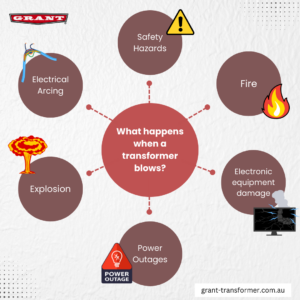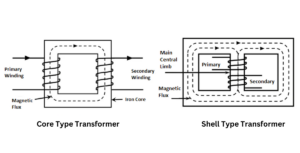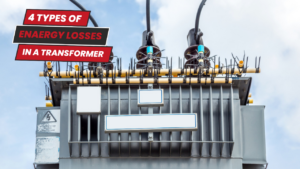Imagine you’re cosied up at home, binge-watching your favourite TV show, when suddenly, with a sound resembling a dramatic Hollywood explosion, the lights flicker, your screen goes black, and your cat starts plotting to take over the world with the newfound darkness. But it’s not a new special effect for your entertainment; it’s the age-old misadventure of a transformer deciding to throw a fiery tantrum with the sound Bzzt! Pop! Flicker! Bang!
Like the opening act of an action movie, there’s the initial ‘Bzzt!’ – a sudden electrical discharge. This is followed by a ‘Pop!’ – the sound of insulation material failing under immense stress. Then, ‘Flicker!’ – the lights do a tantalising dance, and finally, ‘Bang!’ – an explosion. Your cat might think it’s a takeover, but it’s just a transformer’s way of saying, “I’ve had enough!”
With all this, you may wonder what will happen if a transformer blows. Power transformers – those hulking behemoths that silently hum away in electrical substations, channelling electricity like a boss. When a transformer blows, it triggers an electrical arc within the transformer, leading to intense heat and pressure. The resulting explosion can be loud and visibly damage the transformer housing. Subsequently, the vaporised oil and flammable materials may ignite, causing a dangerous fire that can spread if not contained promptly.

Now that you have learned what happens when a transformer blows, it’s time to roll up your sleeves and dive into the behind-the-scenes drama of what causes the transformer to blow (it’s not just because they hate Mondays) and what to do when sparks start to fly.
Common Causes of Transformer Explosion and Burns
Overloading:
Transformers come with clear limits, and going beyond their specified capacity can result in overheating and, ultimately, cause the transformer to break down. Whether it’s due to a surge in demand on the transformer or miscalculations during system planning, it’s like trying to attempt to cram an entire Thanksgiving turkey into a toaster – a surefire way to end in disappointment.
Age and Wear:
Just like fine wines, the core of the transformers ages over time. As they mature, other parts of the transformer, such as the winding, insulation, bushings, and cooling systems, deteriorate due to factors like temperature fluctuations, moisture, and normal wear and tear, increasing the risk of failure. It’s the electrical equivalent of growing old gracefully or not so gracefully.
Don’t wait until your electrical world turns into a fireworks show.
Consider upgrading to a new transformer, one that’s ready to handle the electrical stage with grace.
Poor Maintenance:
Neglecting transformer maintenance is akin to ignoring your car’s oil changes and tire rotations. And we all know what happens when your car decides to throw a fit on a busy Monday morning – it’s just not funny unless you’re making a sitcom about it. Inadequate maintenance, such as neglecting mineral oil level checks, failing to repair minor faults, or not conducting routine testing, can lead to the accumulation of issues over time. These issues may eventually result in catastrophic electrical transformer failures.
External Factors:
External factors are a lot like uninvited guests barging into your party. Extreme weather conditions, including strong winds and rain, along with the dramatic entrance of lightning strikes from a storm, and the occasional overenthusiastic vandal, can turn a transformer’s life into an unplanned action-packed saga. They don’t audition for these roles, but they end up with starring parts anyway.
Sudden Power Surge:
When transformers experience a sudden surge in voltage levels, it’s as if they’ve been given an unexpected electric shock. Often caused by events like lightning strikes or equipment malfunctions, it can overwhelm a transformer’s capacity to handle the increased load, leading to an explosive release of energy. The excessive voltage puts immense stress on the transformer, pushing it beyond its limits. In response, the transformer may exhibit dramatic electrical arcing and sparks, creating a dazzling impromptu light show akin to fireworks.
Severe Electrical Fault:
Transformers throwing an electrical tantrum, such as short circuits or insulation breakdown, can cause a rapid discharge of electrical energy (like a fiery performance that even Hollywood would envy). This discharge generates intense heat, causing the thermal barrier to break down and potentially cause an explosion or burn.
Wiring Issues:
Problems in the electrical wiring connected to the transformer can contribute to transformer failure. They are like a picker eater, and if their wiring isn’t just right, they’ll throw a fit. This includes issues like loose connections, improper grounding, or corrosion of electrical conductors. A faulty network can result in excessive heat generation and ultimately lead to a transformer’s failure.
Also Read: What Causes Transformer Noise and How Can It Be Reduced?
Mitigating Transformer Failures
If a transformer explodes, it can be a dangerous situation, and it’s important to take appropriate precautions. Here are the steps you should follow:
- Stay safe: When a transformer decides to go “boom” or “sizzle,” it’s not auditioning for a cooking show – it’s actually releasing hazardous materials and a wave of heat that would make a barbecue blush. If you don’t want to be a marshmallow in this s’mores party, keep your family and yourself cool and maintain a safe perimeter from power lines.
- Seek professionals: If you ever find yourself witnessing this electrifying drama, your role isn’t to play the hero. It’s time to summon the real heroes by contacting a transformer specialist. Let them know about the transformer’s dramatic performance and any accompanying pyrotechnics or sudden darkness. They’ll know how to handle the situation and prevent further damage and injury.
- Avoid Smoke: If the transformer decides to add a little smoke to its performance, don’t be tempted to take a deep breath and enjoy the aroma. Transformer smoke isn’t lavender-scented, and it contains about as many pleasant surprises as a mystery novel. Stay upwind and maintain a safe distance.
- Report Power Outage: When your lights go out because the transformer decided to take an unscheduled break, don’t simply remain in the darkness. Make sure to promptly report the outage to your electrician or power company. While waiting for the power to be restored, exercise patience and keep an eye out for any notifications or guidelines issued by the utility company.
Also Read: Why are transformer windings made up of copper?
Conclusion
Apart from accidents, another cause of transformer explosions and burns is electrical failure, which can result from factors such as poor insulation, over-voltage, partial discharges, a little static electricity mischief, and voltage spikes. It is essential to take proactive steps and partner with experts and manufacturers to analyse the root causes of these failures and put preventive measures in place.
Grant Transformer, your trusty ally, is ready to lend its expertise and robust transformer solutions. Reach out to us today to make your electrical systems smile with long-lasting reliability!



